The fourth of five conferences held in the Democratic Republic of the Congo brought together nearly 1,000 youth from 16 to 18 August in Nundu, a city on the shores of Lake Tanganyika, reflecting the hope that despite years of civil unrest, their efforts to serve communities together could bring about constructive change.
“This conference is a symbol of the oneness of humanity because it brings together people from different backgrounds, a rare thing in our polarized environment,” said one young man from Kabwali, a locality in the South Kivu region.
“What I’ve understood so far is that a youth’s life must be distinguished by selfless service for the well-being of the community and not by working solely for personal gain.”
A participant at the conference
One of the first themes explored by the participants was the opportunity young people have to live lives characterized by service to others. “What I’ve understood so far is that a youth’s life must be distinguished by selfless service for the well-being of the community and not by working solely for personal gain,” shared a young man who had been invited to the conference by some friends. On the evening of the first day, a group from Mwangaza presented a poem expressing Shoghi Effendi’s hope that youth would arise to assume their responsibilities. Another group from Ngovi sang a moving song about the youthfulness of the Báb at the time He declared His mission.
The materials helped everyone to reflect on the significance of early adolescence, the years between the ages 12 and 15, as a time when young people have left childhood behind and are developing a new level of awareness and expanded spiritual powers. They discussed how their innate capacity for selfless service to humanity can be nurtured through sincere friendship with older youth who assist them in serving their communities. “We have to know that younger youth need our support … It is important that we see this responsibility as a spiritual enterprise. The efforts that we make sare a source of blessing,” one young woman said.
As the days progressed, the participants discussed how the attitude of service they are developing could influence decisions about all aspects of their lives, such as education, work, and family, and can in turn contribute to the advancement of civilization. A young woman said, “I really appreciated the concept of consultation between husband and wife as a foundation for the functioning of a home. I will work to raise the awareness of the young people in my community so they respect this principle in marriage, which is a fortress for well-being.”
A spirit of fellowship enveloped those gathered as they studied, consulted, and sang together in the open air and under the shade of tents. The atmosphere gave rise both to profound joy and a yearning to bring many more friends into the conversation about what the application of Bahá‘u’lláh’s Teachings makes possible. This vision was expressed in a song shared by a group of 40 youth from Baraka.
Identifying one of the reasons that motivated her to share what she had learned at the conference with others her age, one young woman said, “Our involvement in service to our peers is a sign of our love for them.” And the desire of a young man from Buku to join with others in efforts to build a better world was expressed as follows: “Now that I better understand the call of the Universal House of Justice, I am eagerly looking forward to preparing myself to join with younger youth and set out on the path of service.”
MORE HIGHLIGHTS:
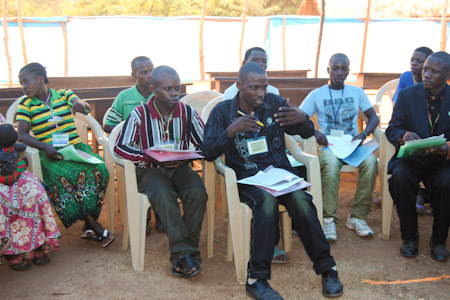
A young man shares his insights during a workshop session
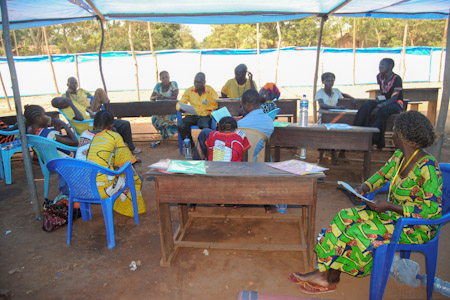
Study of the conference materials stimulated thoughtful reflection
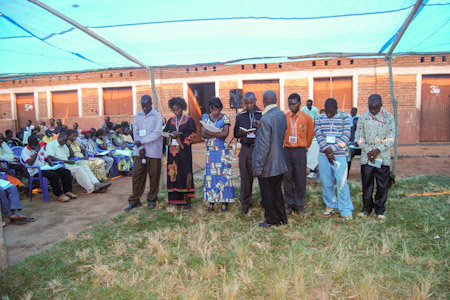
Devotional periods at the beginning of each session set an atmosphere of reverence and thoughtful reflection
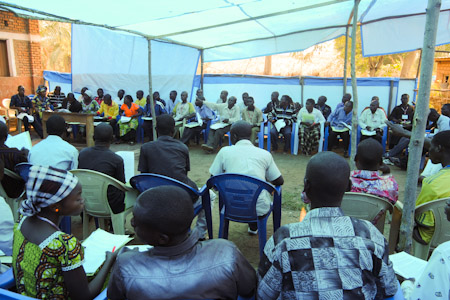
The conference was an opportunity for the participants to reflect together about the contribution they can make to the spiritual and social development of their communities
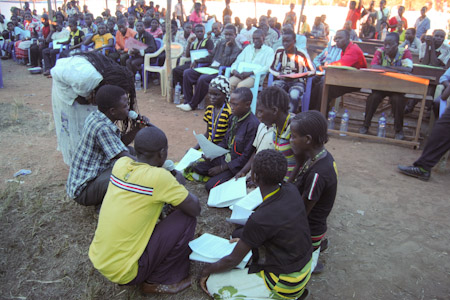
Youth were encouraged to shareinsights with each throughout the weekend
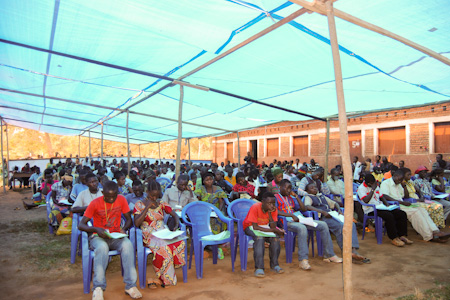
Everyone came together each morning and evening for plenary sessions
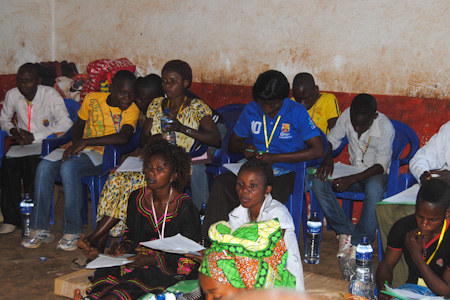
A group of youth engages in the study of the materials
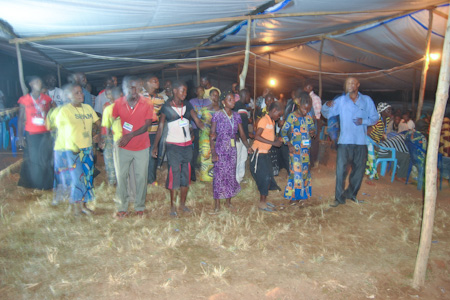
Those gathered shared songs and dances in Swahili and Bembe